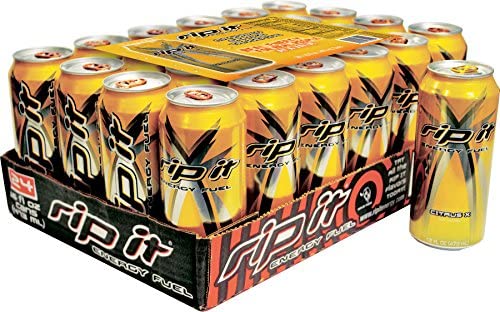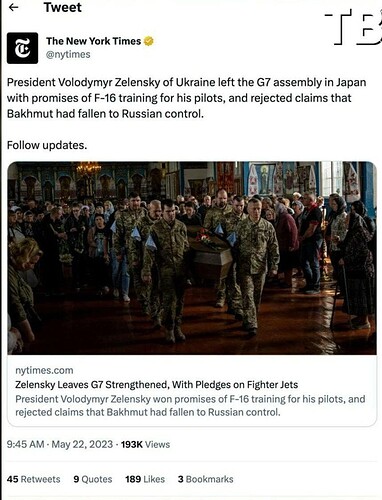It doesn’t work so well when the senior leadership starts getting addicted to pep pills, as the Nazis discovered.
It is not an amphetamine
it was a very fringe and tiny group 2014-2022. still is very small, most analysts i heard equate it to much fewer than a batallion. i think small diversions like that is the extent of what they can pull off. volunteer corp and freedom of russia legion are also probably different as organizations, we only know of a handful of individuals who may be in both, but no other identities or their affiliations.
also assigning ideology to a group is going to be error-prone and mostly an information war talking point. like the group started using white-blue-white flag, but the flag was used before that by many anti-putin people abroad and in russia who are not affiliated with the legion, or afaik any neo-nazi ideology, but the story has already made the association for those who see it for the first time. there is a minor scandal in immigrant opposition circles, because some are rightly not ok with being next to neo-nazis, and otehrs are pretty much waiting on counteroffensive and staying away from that conversation.
we should probably talk about neo-nazi pro-ru indivuduals though. there are many documented instances of them being in the invasion force, participating in screening residents of mariupol, some implicated in civilian murders.
If the force gets encircled and destroyed is it still a successful trolling operation?
Not sure what the current state is of drugs for ground combat troops but there is no way they prefer being tired over using drugs to stay awake and alive. I would certainly make sure I had access to amphetamines or similar if I was fighting in a place like Bakhmut as regular infantry.
A very long, difficult, but good read. It’s not easy being a Ukrainian infantryman round Bakhmut:
A bunch of excerpts:
While Tynda and his team were fighting from the trench, long and powerful fusillades had issued from another Ukrainian position, on a hilltop behind them. I later went there with Tynda. In a blind overlooking the no man’s land stood an improbably antique contraption on iron wheels: a Maxim gun, the first fully automatic weapon ever made. Although this particular model dated from 1945, it was virtually identical to the original version, which was invented in 1884: a knobbed crank handle, wooden grips, a lidded compartment for adding cold water or snow when the barrel overheated…
In the course of the past year, the U.S. has furnished Ukraine with more than thirty-five billion dollars in security assistance. Why, given the American largesse, had the 28th Brigade resorted to such a museum piece? A lot of equipment has been damaged or destroyed on the battlefield. At the same time, Ukraine appears to have forgone refitting debilitated units in order to stockpile for a large-scale offensive that is meant to take place later this spring. At least eight new brigades have been formed from scratch to spearhead the campaign. While these units have been receiving weapons, tanks, and training from the U.S. and Europe, veteran brigades like the 28th have had to hold the line with the dregs of a critically depleted arsenal.
The most advanced and expensive U.S. contributions to the war have been longer-range howitzers and missile systems that operate from the rear. The infantry on the front relies on rudimentary muzzle-loaded mortars, for which there is currently a dire ammunition shortage. The major in charge of artillery for Pavlo’s battalion told me that in Kherson his mortar teams had fired about three hundred shells a day; now they were rationed to five a day. The Russians averaged ten times that rate.
Within weeks, the battalion faced annihilation: entire platoons had been wiped out in close-contact firefights, and some seventy men had been encircled and massacred. The dwindling survivors, one officer told me, “became useless because they were so tired.” In January, what was left of the battalion retreated from the village and established defensive positions in the tree lines and open farmland a mile to the west. “Wagner kicked our asses,” the officer said.
Pavlo estimated that, owing to the casualties his unit had sustained, eighty per cent of his men were new draftees. “They’re civilians with no experience,” he said. “If they give me ten, I’m lucky when three of them can fight.”
Today, popular support for resisting rather than negotiating with Russia remains high, but, as in every war, the burden of sacrifice has fallen increasingly on the underprivileged. Nearly every draftee I met in the trenches had been a manual laborer—farmer, carpenter, dockworker, plumber—and stories abounded of Ukrainians with means dodging conscription through graft or nepotism. “You could find people from the higher classes in the infantry at the beginning of the war,” one veteran told me. “But, after a year, you don’t see an end to this—your chances of dying are higher, you’re fucking tired. Now most of the people are being drafted.”
Thousands of Ukrainians are thought to have died in Bakhmut, and the city has become an uninhabitable wasteland, leading some to question whether the battle has been worth its cost in lives. Various strategic rationales have been offered: more Russian soldiers are dying than Ukrainian soldiers are; a withdrawal would merely shift the carnage to another town; it is advantageous to tie up Russian forces until the new Ukrainian brigades can launch their spring offensive. But Zelensky has also imbued Bakhmut with symbolic significance. While addressing the U.S. Congress, in December, he claimed, “Just like the Battle of Saratoga, the fight for Bakhmut will change the trajectory of our war for independence and for freedom.” This March, Zelensky told the Associated Press that if Ukraine lost the city Putin would “smell that we are weak” and “sell this victory to the West, to his society, to China, to Iran.”
Such considerations may be justified, but they have an abstract quality that is far removed from the mud and blood of the front. “The infantry hasn’t changed since the First World War,” Oper said. “Weapons, communications, and logistics have changed, but our job is the same.” Another thing that hasn’t changed is the expectation that infantrymen will do their job without necessarily understanding why. When it’s unclear how they figure into the broader strategic calculus—and whether they are being sacrificed carelessly, as Odesa had come to feel about his friends in Kherson—infantrymen fight to save one another. The campaign to win a war can then resemble a struggle to survive it.
If the play button is blocking it for you, that’s Harry Potter
US military has a long recent history of providing their troops with “or similar.”

weaponized cringe
On one side, the juvenile tankie apologists masquerading as realpolitik anti-imperialists.
On the other, once more unto the breach supporters of self-determination.
I do not have to ask myself which side I’m on.
You should go into the breech, Ukraine is currently accepting foreign volunteers
Dollar store energy drinks I love those.
Family dollar sells them for $1.25 a can, previously .99. Hard to find any energy drinks that cheap, but for what they are they are okay. I buy them, because I am a cheapskate and all energy drinks only taste so good.
I’m gonna say Wednesday because “Wars rarely start on a Wednesday.”
https://twitter.com/KyivPost/status/1663273006288781313?s=20
Bizarre to announce pending offensives to the media.
Everybody knows. It’s not a secret. More bizarre to deny an intention to start a war when all your troops are at the border. Most bizarre to say an invasion isn’t going to happen then say you were right all along after it happens.
Who said that?
